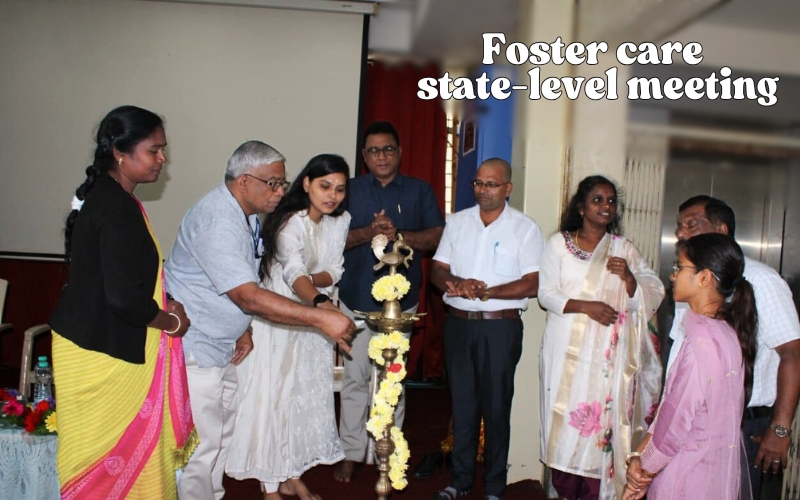Foster care is an alternative child-centric approach promoted by BREADS for the care of those children, who either do not have or cannot live with their biological families for any reason. These children are placed with alternative families or caregivers. This alternative care initiative of BREADS, started in 2016, aims to provide safe and supportive family-based care for children instead of institutional care, wherever possible. It has reached 22 districts in Karnataka so far. The foster care approach is aligned with section 40 of the Juvenile Justice (Care and Protection of Children) Act (JJA), as a means of rehabilitation and social reintegration of children in need of care and protection.
The acceptance of foster care has seen significant improvement in the past years. BOSCO (BREADS’s partner in Bangalore) has been a pioneer in this area, making significant contributions to State rules and proposed models for implementation in Karnataka. An important milestone on 26 December 2024, was the formalising of a memorandum of understanding (MOU) among the concerned government agencies and BOSCO, to take the foster care concept forward in all 31 districts of Karnataka. This strategic alliance is expected to raise awareness and increase the number of foster care placements in all the districts by enhancing public understanding of foster care and adoption processes to create an informed and supportive community for children in need.
On 22 February 2025, a state-level meeting for planning and monitoring of the Alternative Care programme was held in BOSCO Yuvodaya, Bengaluru. It was attended by all the programme staff, BREADS Executive Director Fr PS George, BOSCO Director Fr. Varghese Pallipuram, and Ms Asha HK, District Child Protection Officer (DCPO), West Division. The sessions highlighted the roles and responsibilities of social mobilisers and child protection officers in effectively overseeing and managing foster care placements. Key concepts such as the Problem Tree, Solution Tree, Social Return on Investment were discussed, as well as the procedures for placements per the JJA. The significance of regular discussions for continued support from officials like the DCPO, PO-NIC, or CWC was emphasised.
It is indeed challenging to successfully place a child in a caring foster home. It calls for well-defined procedures, liaising among various parties, seamless communication and coordination, and thorough documentation to uphold transparency, accountability, and to effectively monitor each child’s progress and well-being. The team is geared up to extend their mission from 22 to 31 districts in Karnataka to ensure that children receive the love, care, and education they need within family and community settings.





